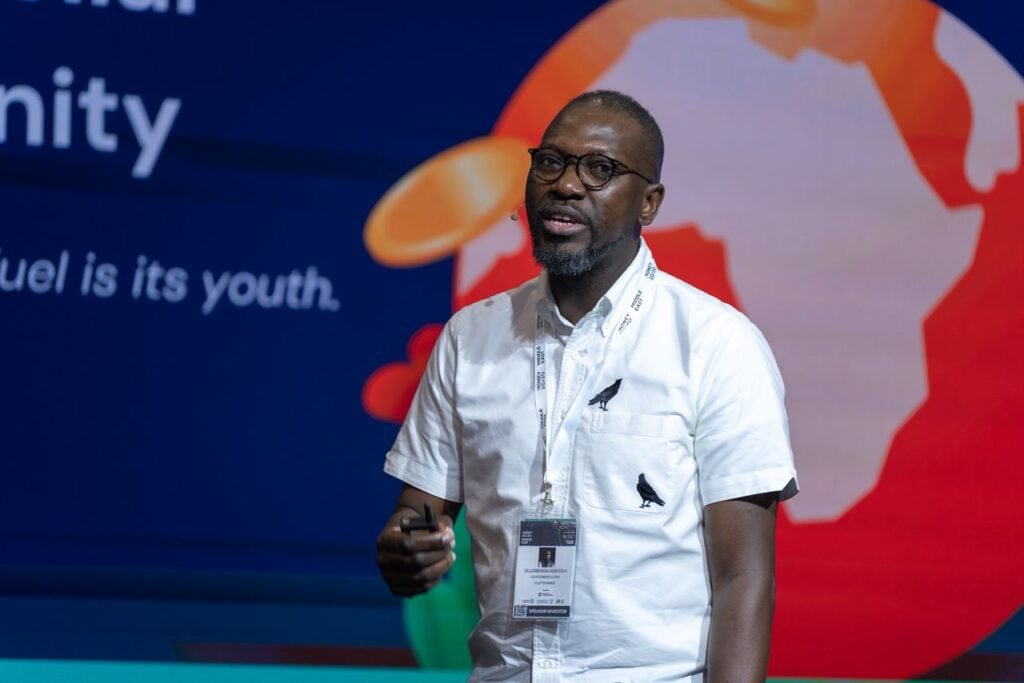Nigeria’s removal from the Financial Action Task Force (FATF) grey list has sparked excitement among fintech leaders and investors who believe it will open new doors for innovation, international partnerships, and lower remittance costs.
Executives of two of Nigeria’s leading fintech firms — Flutterwave and Paga — have hailed the development as a major win for the country’s financial ecosystem, saying it will significantly ease the movement of money across borders and boost investor confidence in Africa’s largest economy.
Table of Contents

From Grey List to Green Light
For nearly three years, Nigeria had been on the FATF “grey list” — a category for countries requiring increased monitoring over issues related to anti-money laundering and counter-terrorism financing (AML/CFT).
Being on the list didn’t mean Nigeria was blacklisted, but it did make global transactions harder. International banks often applied extra scrutiny to payments involving Nigerian entities, leading to higher transaction costs, delays, and barriers for fintechs trying to build cross-border networks.
On Friday, FATF announced that Nigeria — alongside South Africa, Burkina Faso, and Mozambique — had been officially removed after the country demonstrated “sustained progress” in strengthening its AML/CFT framework.
For Nigerian fintechs like Flutterwave and Paga, the news was the breakthrough they had long awaited.
Olugbenga “GB” Agboola, CEO of Flutterwave, described the delisting as a “transformative moment” for the sector.
“This delisting restores confidence, lowers remittance and cross-border costs, and unlocks faster, cheaper payments to and from Nigeria,” he said.
Similarly, Paga’s CEO, Tayo Oviosu, took to social media to express optimism that the decision would reignite international engagement with Nigerian businesses.
“This is a big deal for Nigeria. It opens the country for more FDI and partnerships from the West,” he noted.
Relief for Fintechs and the Diaspora
For millions of Nigerians in the diaspora who regularly send money home, FATF’s decision could make a tangible difference. The country receives more than $20 billion in annual remittances, a crucial source of income for families and small businesses.
When Nigeria was grey-listed, remittance companies faced more compliance steps, which slowed transactions and increased costs. With the new status, fintech experts say Nigerians should expect smoother and cheaper remittance flows.
The benefits also extend to local startups that depend on foreign investment or cross-border payments. Without the grey-list label, Nigeria’s fintech firms can negotiate international partnerships with fewer restrictions and reduced compliance overheads.
A Lagos-based fintech analyst, Temitope Adeyemo, said the delisting could “turbo-charge” Nigeria’s tech sector:
“Many global investors avoided Nigerian fintechs not because of performance, but because the compliance risk was high. Now that the label is gone, you’ll see more capital flowing into the ecosystem.”

Government, Civil Society, and Regulators Applaud the Move
The Nigerian government has celebrated the FATF decision as a validation of its recent reforms. The Minister of Finance praised regulatory bodies such as the Central Bank of Nigeria (CBN), the Nigerian Financial Intelligence Unit (NFIU), and the Economic and Financial Crimes Commission (EFCC) for strengthening the nation’s anti-money-laundering regime.
Civil-society groups also joined the applause. BudgIT co-founder Oluseun Onigbinde described it as “a very good outcome” and commended the NFIU’s leadership.
Behind the scenes, experts say Nigeria’s improved coordination between the Ministry of Justice, CBN, and financial institutions was key to meeting FATF’s global standards. The reforms included better monitoring of suspicious transactions, stronger oversight of virtual asset service providers, and improved information sharing between agencies.
The Road Ahead: Opportunities and Responsibilities
While the news is good, analysts warn that the real work starts now. Being delisted does not mean Nigeria can relax; FATF expects continuous commitment to enforcement and transparency.
For fintech companies, the challenge will be maintaining strong compliance systems while scaling rapidly. Flutterwave and Paga have both faced scrutiny in recent years, and this moment gives them a chance to reset narratives around trust and governance.
A compliance officer at a leading fintech who spoke anonymously told Nairametrics:
“Delisting gives us credibility back, but it also means we have to double down on doing things right. Regulators abroad will still watch how we operate.”
Nigeria’s fintech ecosystem — now one of Africa’s largest — has become central to financial inclusion efforts. With over 200 million people and an increasingly digital economy, the opportunities for growth are massive. The FATF delisting could accelerate partnerships with foreign payment providers, remittance platforms, and banks eager to re-engage with Nigeria.

A Turning Point for Nigeria’s Financial Future
In many ways, the FATF decision closes a difficult chapter in Nigeria’s financial history and signals a new phase of opportunity. Investors, fintech operators, and consumers alike are looking forward to faster, more transparent, and more affordable financial interactions.
As Flutterwave’s GB Agboola put it, this is not just a win for fintechs but for Nigeria’s economy as a whole. “When the world trusts your financial system again,” he said, “everyone — from the small merchant in Aba to the startup in Yaba — benefits.”
For now, optimism runs high. But as Nigeria steps back onto the global financial stage, maintaining compliance, deepening reforms, and building trust will be key to keeping that door open.
Join Our Social Media Channels:
WhatsApp: NaijaEyes
Facebook: NaijaEyes
Twitter: NaijaEyes
Instagram: NaijaEyes
TikTok: NaijaEyes





